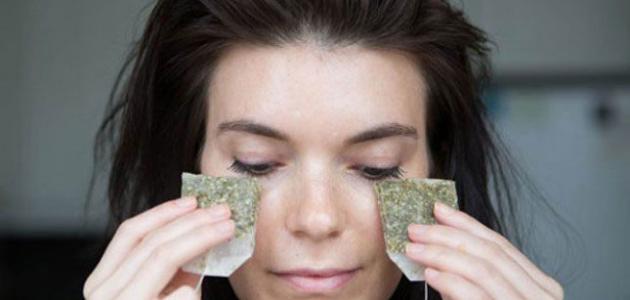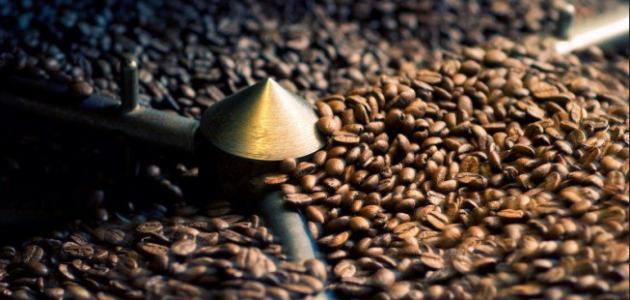Contents
Coffee
Coffee is a drink that is prepared from coffee beans that represent the roasted fruits of the coffee bush known scientifically as ( Coffea arabica ). Coffee is usually drunk as a stimulant, [1] as millions of people drink it daily to increase alertness and focus and reduce fatigue, [2] as well. It is used in the prevention and treatment of many health problems, [1] and the coffee bush grows to a height of up to 8 meters, and its leaves bear a bright dark green color, and these leaves are 6 to 20 cm long and 2.5 to 6 cm wide, and it varies a lot on the origin and habitat of coffee. However , it is now grown in many tropical regions such as Brazil, Mexico, Colombia, Ethiopia, [3] the coffeeOne of the most popular drinks in the world, as it is often drunk because of its caffeine content, in addition to its flavor and aroma that attract people to it. [4]
Consumption of coffee is associated with many health benefits, such as increased clarity and clarity of thinking, prevention of colon and rectal cancer, prevention of dizziness in the elderly, prevention of Parkinson's disease , gallstones, [1], type 2 diabetes, and liver disease (cirrhosis and cell carcinoma). Hepatocellular carcinoma, and on the other hand, drinking large quantities of coffee can cause many negative effects, which were found to be associated with high consumption of caffeine and unhealthy behaviors, such as smoking and lack of physical activity , which accompanies drinking coffee for many, [4] and in this The article details the most important harms that result specifically from consuming coffee, and the science opinion about it.
Damage to coffee
Caffeine intake to the extent of 400 mg per day, equivalent to approximately 4 cups of coffee, is considered safe (other sources of caffeine must be taken into account) and does not pose any health risks, [2] and despite the multiple benefits of coffee and the safety of consuming it in moderate quantities, only Eating them in large quantities carries many damages, and their damages include the following:
- Higher risk of cardiovascular disease : Several case-control studies have found that high coffee consumption is associated with a higher risk of coronary artery disease and myocardial infarction. Studies have found that the risk of developing cardiovascular disease in people who Drinking 5 or more cups of coffee per day is 40-60% higher than people who do not drink coffee, and the risk of coronary artery syndrome has been found.Acute coronary syndrome is three times higher in people who drink at least 600 ml of coffee per day compared to people who do not drink coffee, while the risk of developing it in people who drink less than 300 ml of coffee per day was found to be lower than in people who drink Do not drink coffee, and in contrast, many large prospective exposure studies (Prospective cohort studies) did not find any association between coffee consumption and cardiovascular disease , and a Norwegian study found no association between coffee consumption and an increased risk of cardiovascular disease, except in people who consumed 9 cups per day. Of coffee after at least 12 years of follow-up, [4] and drinking coffee can also trigger a heart attackIn people with risk factors for heart disease who do not drink coffee regularly, the risk of a heart attack increases within an hour after drinking coffee for these people. [1]
- Impact on people with coronary heart disease: There is insufficient scientific research studying the effect of coffee drinking on people with origins in coronary heart disease , but it has been found that drinking 10 cups or more of coffee per day increases their risk of sudden cardiac arrest. While a study of 1935 people who had previously had a myocardial infarction did not find a relationship between coffee consumption and the risk of death within 4 years, but in both studies there were only a few who drink large amounts of coffee, i.e. 10 cups or more, [4] and it may be considered Drinking 5 or more cups of coffee a day is not safe for people with heart disease. [1]
- High risk of stroke: A study of a group of men with high blood pressure (which represents a high-risk group) found that the risk of stroke in people who drank 700 ml of coffee per day at least twice the risk of developing it in people who did not They drink coffee, while some studies have not found a relationship between coffee consumption and the risk of stroke, and in general there are few studies that examine the relationship between coffee and stroke , and this relationship needs more scientific research to determine it, especially in high-risk groups. . [4]
- Drinking boiled (unfiltered) coffee raises total blood cholesterol, bad cholesterol [4] and triglycerides, and these effects are reduced by filtering the coffee. [1]
- Several studies have found that high coffee consumption raises the level of homocysteine in the blood, which is directly related to cardiovascular disease, while it was found that a 6-week interruption of coffee in people who drink an average of 4 cups of coffee per day results in a decrease of 11%. In the level of homocysteine, it has also been found that taking folic acid prevents the rise in homocysteine caused by coffee, and the factors that cause an increase in homocysteine are the cafestol (Cafestol) and the coffee (Cahweol) present in unfiltered coffee. [4]
- Scientific studies have proven the effect of acute and direct coffee drinking in raising blood pressure in people with normal pressure and in people with high blood pressure, where it was found that drinking 200-250 mg of caffeine (i.e. what is found in 2-3 cups of coffee) raises systolic blood pressure With a rate of 3-14 mm Hg and increases the diastolic blood pressure by 4-13 mm Hg in people with normal blood pressure, and this pressure raising effect may be more pronounced in people with high blood pressure, although it was found that the continuous consumption of coffee creates resistance to its effect Lifting pressure, but this effect is not complete even in people who drink coffee daily, while the results of studies on the effect of coffee consumptionThe long-term risk of developing high blood pressure is less clear, as some studies found a direct relationship, others found an inverse relationship, while other studies did not find any correlation between them, and in general the long-term association of coffee consumption with the risk of developing high blood pressure is small. And this link remains in need of more scientific research to clarify it. [4]
- Some preliminary case and control studies have found an association between coffee consumption and the risk of pancreatic, bladder and ovarian cancer, while recent, better-designed studies have not found a relationship between coffee or caffeine intake and these types of cancer in addition to stomach, breast and prostate cancer. [4]
- Coffee intake reduces calcium absorption, [4] and increases its excretion in the urine, [1] and many studies have found that high consumption of coffee reduces bone mineral density and increases the risk of osteoporosis and fractures, while some studies have not found a relationship between them, especially when Eat adequate amounts of calcium. [4]
- The polyphenols present in coffee bind with iron and prevent its absorption, and it was found that consuming 150-250 ml of coffee with a meal reduces the absorption of non-heme iron by 24-73%, and stopping coffee has been found to improve the absorption of iron from dietary supplements. Therefore, coffee should be avoided with meals to increase iron absorption. [4]
- Coffee contains substances that bind to zinc and reduce its absorption, and although there are no adequate studies investigating the effect of coffee consumption on the state of zinc in the human body, it was found in an in-vitro study that coffee reduces bioavailability. Of zinc, by 21-32%, and there is one report proving that drinking coffee reduces zinc absorption, while one study did not find that cutting out coffee improves the level of zinc in the blood. [4]
- Some studies found that consuming caffeine and coffee (400-800 mg of caffeine per day) delay the fertilization process, and two studies found a decrease in the likelihood of pregnancy in women who consumed at least 300 mg of caffeine per day, but most of these studies did not take into account other factors such as Smoking cigarettes and drinking alcohol , on the other hand, some studies have not found a relationship between drinking coffee and fertilization, but based on the information currently available from scientific studies, it is preferable to avoid consuming caffeine in quantities greater than 300 mg per day by women who have difficulty fertilization. [4]
- Some studies have found an association between drinking coffee in large quantities and miscarriage. [4]
- Several studies have found that consuming 200-400 mg of caffeine daily during pregnancy is associated with a decrease in the weight of the newborn by about 100 g, and it has been found that consuming more than 150 mg of caffeine daily during pregnancy increases the chance of a 50% decrease in the weight of the newborn . Studies have linked caffeine intake to fetal growth retardation. [4]
- Breastfeeding consumption of high quantities of coffee causes irritation in the infant, disrupts his sleep [4] and upset his stomach. [1]
- A child should not ingest caffeine in amounts greater than 2.5 mg / kg of body weight per day. Consuming more than 3 mg / kg of body weight per day has been associated with irritability, sleep disturbance and anxiety, and there is insufficient information on the effects of high coffee in children. [4]
- Coffee drinking raises the level of caffeine in the blood of the elderly more than usual, and thus increases the risk of its interaction with drugs taken by the elderly, and drinking coffee may raise the risk of osteoporosis and fractures, which is already high in the elderly, which increases this The risk, especially with a deficiency in calcium and vitamin D, and some studies suggest that drinking coffee may cause more negative effects in the elderly. [4]
The side effects
Drinking coffee is considered safe in most adults. [1] Drinking coffee in large quantities can cause some symptoms that include irregular heartbeat, palpitations, restlessness, anxiety, irritability, tremors, headache , tinnitus, abdominal pain, nausea, vomiting, and diarrhea. High urine output, [4] and increased breathing rate, [1] . Drinking 6 cups of coffee per day can lead to the so-called coffee addiction , whose symptoms include anxiety and irritability. [1]
And it can produce caffeine withdrawal symptoms in people who used to drink coffee for long periods even if the daily intake is small, as the side effects appeared in people who drink 100 ml of coffee daily, and of course the symptoms were more pronounced the more the usual amount consumed. These symptoms include headache, fatigue , dizziness, irritability, difficulty concentrating, and irritable mood. Withdrawing from coffee can also cause nausea and muscle pain (Myalgia). Withdrawal symptoms are less when you gradually stop consuming caffeine instead of abruptly leaving it. [4]
Contraindications to taking coffee
Be careful when drinking coffee in the following cases: [1]
- Pregnancy and breast-feeding : Drinking two cups or less of coffee per day for pregnant women, that is, what contains 200 mg of caffeine , is generally safe, but consuming more than that increases the risk of miscarriage, premature labor and low birth weight, and these risks increase the higher the amount of coffee consumed from Before pregnancy, it is safe to drink a cup or two of coffee per day for a nursing infant, but eating larger quantities can cause irritation in the infant's digestive system, in addition to irritability and sleep problems .
- Children : It is not considered safe for children to drink caffeinated coffee, as the side effects of drinking caffeine are more severe.
- Anxiety disorders : Drinking coffee can make these conditions worse.
- Bleeding disorders : Drinking coffee can make these conditions worse.
- Heart disease : As mentioned above, drinking unfiltered coffee raises blood lipids (fats) and homocysteine levels, which increases the risk of developing cardiovascular disease.
- Diarrhea : High amounts of caffeine can make diarrhea worse .
- Irritable Bowel Syndrome : High amounts of caffeine can cause increased symptoms of IBS and diarrhea.
- Glaucoma : The consumption of caffeinated coffee raises the pressure inside the eyes 30 minutes after drinking and lasts for at least 90 minutes.
- High blood pressure : Drinking coffee can raise blood pressure in people with high blood pressure, but this effect could be less in people who drink coffee regularly.
- Osteoporosis : Caffeine intake increases the amount of calcium that the body excretes in urine, as people with osteoporosis should not consume more than 300 mg of caffeine per day (equivalent to 2-3 cups of coffee), and the lost calcium can be compensated for by taking supplements Dietary calcium, and extra vigilance should be taken by postmenopausal women who have a genetic problem that prevents normal vitamin D assimilation.
Drug interactions
Caffeine interacts with a large number of drugs, and its interactions include the following: [1]
- Coffee interacts with ephedrine (Ephedrine) as it acts as a stimulant and also a stimulant, which increases the risk of side effects.
- Caffeine reduces the effects of some drugs, such as adenosine, which is used to conduct a heart examination, Alendronate, Dipyridamole, Lithium (and sudden withdrawal from coffee causes an increase in the side effects of this drug), and Pentobarbital. And drugs (Phenothiazines), which should avoid drinking coffee an hour before and after two hours, as well as some depression drugs (Tricyclic Antidepressants) that reduce coffee absorption, which include (Amitriptyline) and (Emipramine), and coffee interacts to a lesser extent with diabetes control drugs, as it can Caffeine raises the blood sugar level , which reduces the effectiveness of these drugs.
- Some medications reduce the body's ability to eliminate caffeine and raise the level of caffeine in the blood and its side effects, such as alcohol, and some antibiotics, such as (Ciprofloxacin), (Enoxacin), (Norfloxacin), (Sparfloxacin) and (Grepafloxacin). ), (Disulfiram), estrogen , (Fluvoxamine), (Verapamil), and (Levothyroxine), and this effect is obtained to a lesser extent than the contraceptive drugs , Cimetidine, Fluconazole, Mexiletine, and Mexiletine (Terbinafine).
- Drinking coffee reduces the body's ability to eliminate some medicines, which raises their level in the body and increases the risk of their side effects, such as the drug (Clozapine) and the drug (Riluzole).
- Drinking coffee increases the effect of some medications, such as some depression drugs (MAOIs) that include (Phenelzine), (Tranycypromine) and others, and drugs that slow blood clotting , such as aspirin (Aspirin), (Clopidogrel), and (Diclofenac). (Ibuprufen), (Naproxen), (Dalteparin), (Enoxaparin), (Heparin), (Warfarin) and others, and (Phenylpropanolamine), and (Riluzole), and stimulant drugs, such as (Diethylpropion), and (Epinephrine), (Phentermine), (Pseudoephedrine) and others, and (Theophylline).
References
- ^ A b t w c h x d y t g o u " the Find of a Or the Vitamin Supplement: COFFEE View " , WebMD . Edited.
- ^ A b "Caffeine: How much is too much ?" , mayo clinic . Edited.
- ^ Fleming T, PDR for Herbal Medicines , Page 202-205. Edited.
- ^ A b t w c h x d y t g o u r z i J p g p s Higdon Freiz B . And the JV, "Coffee And Health: A Review , Research Of HUMAN 's Avatar Recent", Critical Reviews In Food Science And Nutrition , Issue 46, Folder 2, Page 101-123. Edited.








